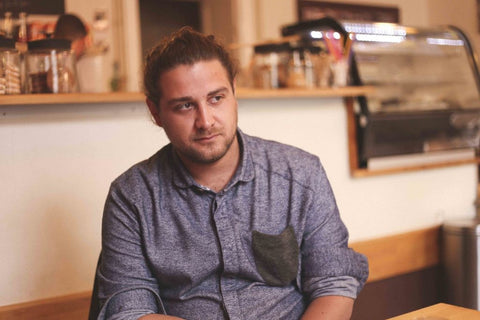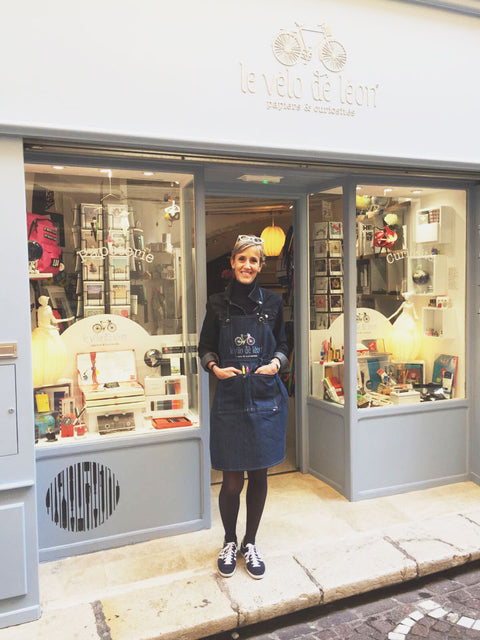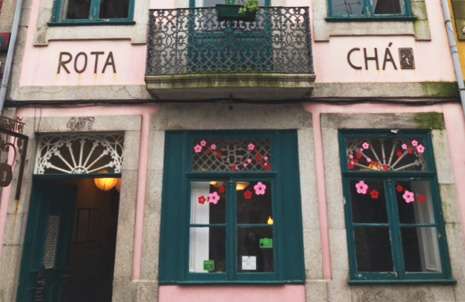

Tell us about your latest project.
A few years ago, Arab tourists from the Gulf States started coming to Bosnia and building houses. There was a war in Bosnia and the Bosnian Serbs sold land. The land was then bought up. There are villages where there are fewer than 90 houses and 40 belong to Arabs. They are not there all year round, but in the summer Arabic is spoken there. I have also seen many more young Bosnian women wearing headscarves than I did a year and a half ago. It is definitely a change.
If you do something like that, is it freelance work?
Yes, it is freelance work. I haven't started working yet and I don't have any orders yet. I only finished my studies in the middle of last summer. Since then I have been earning money. My last trip was to Moldova last November. A poor country. The poorest country in Europe. And there I did a paper about the political identity of Moldova.
Moldova is very pro-Russian, right?
Not at all. Both. Some want the EU, some want Russia. Everything is divided from the bottom up. Everything is very corrupt. And they don't really know what they are. They haven't had a war, but they are a very divided country. In Transnistria, where I unfortunately haven't been, time has stood still. There are still statues of Lenin and tanks. They have a currency that is not recognized anywhere, not even in Moldova.
What connects you with the Balkans, what with Germany?
I grew up there and spent 20 years of my life in Sarajevo. I came to Germany six years ago, but in the 90s I was here for four years as a child. After that I went back, went to school, got my A-levels and then I wanted to study photography in Germany. Maybe I'll continue my studies, but then in America. But only maybe.
What is the focus of your work?
I'm interested in politics and would love to work in Asia. I'm a fan of Asia because everything is cool there. It's funny, I'm just fascinated by the cultures. I was in Shanghai, that was a university excursion and then I flew to Vietnam and bought a motorbike and drove through the country. That was a great experience. And then Cambodia and Bangkok. I definitely want to go back there.
How do ideas for photo projects arise?
News mostly. I read all sorts of things and if something interests me, I research it. Then it comes along. Or simply interest, like with my bachelor's thesis. That was about the former Yugoslavia. I wanted to do something about borders and then it became a thesis about the borders in people's minds.
How did you depict this visually?
Very metaphorical. It was difficult to grasp and I don't know if I managed it. I studied a country that is splitting up into seven other countries and has lived in a common identity for over 50 years. It was a communist and later a socialist regime. If you have a state with its own borders, you also need your own identity. Since different languages are spoken within Bosnia, a survey was launched last week in schools to find out which language they should learn: Bosnian, Serbian or Croatian. Up until now, they have learned all three. There is no big difference. Now they only want one language and we'll see which one it will be.
What are your feelings towards Yugoslavia?
There is a strong Yugoslavian nostalgia. But I personally don't regret not having lived in that time. My parents tell me about a city that no longer exists. They say it was the most beautiful city in the world. Sarajevo. I would have loved to experience it, but what is happening there right now is frightening, all the nationalism and corruption. The political situation is miserable. In Sarajevo, for example, there is no water at night from 11 p.m. to 7 a.m. because some pipes are broken and cannot be replaced. People were standing in front of the government building and shouting that they needed water. I thought that was pretty sad.
Are you in Sarajevo quite often?
I haven't been there for a year and a half, but I try to fly there every six months.
Is this home for you?
Yes, absolutely. Hamburg is just the place where I live. But Sarajevo is becoming more and more strange to me, also because of the things I just told you about. I think Hamburg is very nice and it is the only city in Germany where I would live.
What do you like about Hamburg?
I think it's more honest than Berlin. The Berliners are just too nice for me. The people in Bosnia are a mixture of Hamburg and Berlin, just not as German. But more welcoming. Not as nice but welcoming.
What is your work 'Across the interstates 45' about?
I went on a field trip there from the university. Austin in Texas is growing incredibly fast because of the IT industry. Apparently it's going to be the new New York. There's a ghetto, East Austin, that's across the interstate. The highway was built there between the black neighborhoods and downtown or the white neighborhoods. As Austin is growing, lots of young people with money are coming here, similar to Berlin, who are then displacing poor people.
How were the portraits created?
I just sit down somewhere in a bar, for example, and try to talk to them. If I see that they can put a little trust in me, I take a photo. I always ask people before I take a photo, because I don't have the rights to the picture or the person. The moment I'm looking for, or the look I'm trying to get, won't happen if the person doesn't put a little trust in me. Something has to happen for a picture to emerge.
What I also found very beautiful were the portraits of your mother…
My mom lives in Sarajevo, Bosnia. I had to do something for university and the first pictures were taken within 10 hours. Then I saw that it was very beautiful and that it could one day be a very valuable and meaningful series for me personally. By the way, she only has that tired look when she looks at me. (laughs)
Thank you very much, Vedad!
More on Vedad's website: divovic.com





